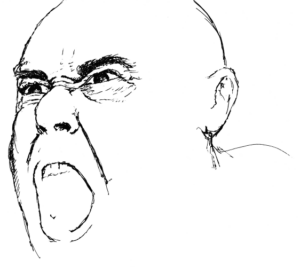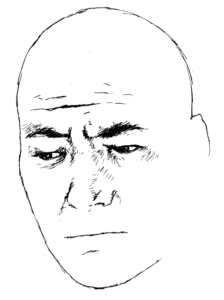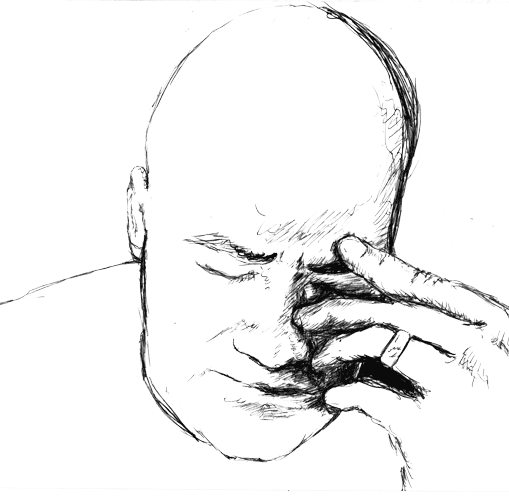Morgan asks to meet with me after class to discuss the upcoming paper assignment. We just finished reading a 1960s lesbian pulp novel in “Introduction to LGBT Studies” and the assignment in question is a creative one with 3 choices: either retell a scene from the book in a contemporary context with contemporary dialogue, tell what happens next after the conclusion of the book, or visually retell a scene from the book graphic novel style.
It is meant to be a fun assignment, as it is mid-semester and this is the third of seven paper assignments. Morgan is visibly stressed as he begins to share how he is stuck on how to approach this assignment. The more I try to explain that this is meant to be fun and he can’t really do it wrong, the more frozen and panicked he becomes.
His panic is symptomatic of worrying trends in higher education.
My most recent experiences as a professor at a public university have been profoundly dehumanizing. As someone who has attempted to make the university my home since the mid 90s, I have witnessed first-hand what many are characterizing as the corporate takeover of education and the catastrophic consequences for students and faculty.
My undergraduate education prompted me to want to become a teacher. As a transgender kid, I didn’t have a peer group growing up. I threw myself into school and my teachers were my friends and peers. When I got to college, I saw the transformative potential of education vividly realized. University of California-Santa Cruz didn’t have formal grades. Instead, we had intensive and all-encompassing narrative evaluations. Nor did we have Greek life or a sports culture. The focus was on the learning process—an approach that is central to my teaching now. I blossomed in this cooperative and engaged education environment and decided that I couldn’t imagine a more noble endeavor in which to invest my life energy than teaching .
I had a very different experience when I entered graduate school in a traditional department at a Midwestern Big Ten university. There I found that higher education was not just about passionate teaching and learning. Neoliberal policies were just starting to take hold—visible in the corporate funding of not only buildings but even individual classrooms (the Hormel classroom, for instance) and the institution of “Graduate Student Appreciation Day” where economically exploited graduate students were literally given cake after a vicious university campaign undermined attempts to create a grad student union. It would have been hard to imagine at that time that I’d soon be living in a world where the majority of academic faculty would actually have worse employment conditions than we had as grad students.
But it is not just grad students or adjunct faculty that are suffering in contemporary public higher ed. Much of the autonomy that used to be guaranteed in the life of a professor has been lost as corporate management techniques are employed by the swelling ranks of administrators that predominate the university environment. Faculty meetings and merit reviews have been reduced to a numbers game—how to better market classes and departments to increase numbers of students, elaborate rubrics to quantify not only publications and citations but every aspect of professional service (for instance, I receive multiple points for serving on a student’s honors thesis committee, but zero points for mentoring and counseling marginalized students who otherwise would have left the university).
Two years ago my university implemented a standardized B- grade point average (GPA) for all undergraduate classes, undermining a professor’s ability to determine what counts as quality in their own classrooms. I became the subject of scrutiny because the GPA for my classes was too high, given that I design my assignments so that students are largely successful. Whereas most faculty in my department, as well as the broader institution, grade students primarily on pressure-filled midterm and final exams, students in my classes write six to seven papers. Admittedly this is more work for them, and for me, but it is a far richer learning experience. And students tend to perform better when there are multiple types of assignments that employ different skills, as well as allow them to focus on aspects of the course materials that they feel most passionate about. However, at my institution, when the majority of your students are performing poorly, it is considered “rigorous teaching,” whereas if the majority of your students are doing well, it is considered “grade inflation.”
Last month I received word at our departmental faculty meeting that new standardized teaching measures, coming from STEM pedagogies and corporate quality assessment techniques, are just about to be implemented across the board at my institution. These measures will not only regulate how student learning and effective teaching are evaluated, but even what counts as “teaching.” In the process, what remains of creative, engaging, nourishing, student-centered teaching—the kind that inspired me to want to become a teacher in the first place—will be rendered suspect and eliminated.
 My experience is not entirely unique. Other colleges and universities are implementing standardized teaching practices and punishing, overtly or covertly, faculty who do not comply with these new regulations. Recently, at another school in the area, a long-time adjunct was unceremoniously fired for his “lack of effectiveness” in restructuring his course to follow new guidelines that would, ultimately, make it “much easier to get an A.”
My experience is not entirely unique. Other colleges and universities are implementing standardized teaching practices and punishing, overtly or covertly, faculty who do not comply with these new regulations. Recently, at another school in the area, a long-time adjunct was unceremoniously fired for his “lack of effectiveness” in restructuring his course to follow new guidelines that would, ultimately, make it “much easier to get an A.”
So, what impact has this move towards mind-numbing standardization had on students? During my time as a tenure-track faculty member at another big Midwestern research one institution, I began to notice that students required an amazing amount of structure in order to function in the classroom. They could not watch a film without a study guide to tell them what to look for. They could not engage with course readings without professor-generated study questions. Though previous students had really appreciated open-ended prompts for their papers, this new generation of students—who’d come up under the “No Child Left Behind” policies—were absolutely paralyzed and resentful when faced with open-ended questions. They demanded rubrics with elaborate breakdowns of assignment points and continually wanted to know what their grade standing was. Contemporary students may be losing sight of the intrinsic value in learning, compromising their abilities to be lifelong learners, and they have learned—reflected everywhere in higher ed—that it’s not substance that counts, but numbers.
This obsession with numerical measures and ranking discourages integrity—from students feeling pressured to cheat due to grade pressures to universities under-reporting sexual assault on their campuses. The pressure created for students in this climate is antithetical to learning, which brings me back to my student Morgan.
Morgan needs to do well, he tells me, and he’s never been asked to do something creative like this and is so afraid of doing it wrong—and his GPA suffering—that he’s totally immobilized. I end up contracting with him to try something out of the box—just as an experiment—to move past his performance anxiety. And if it goes wrong and he doesn’t get the grade that he wanted, we can work together to create an alternate assignment.
Although this is one student’s experience, it’s sadly representative of the intense pressure and anxiety many of my students are living under. Increasingly, I’m finding students panicking on the first day of class because they haven’t yet mastered the concepts of the class. And we haven’t even started yet.
 Learning is an inherently vulnerable process. In order to learn something new, we have to admit that we don’t know it already, so embarking on a learning journey right from the start requires a lot of courage. In order to test our newfound learning, we have to be willing to take a risk—whether that be raising a hand in class or submitting a paper—which requires us to be both humble and secure enough to open ourselves up to criticism and feedback. And the entire process demands that we be patient and compassionate with both ourselves and others as we are figuring it all out.
Learning is an inherently vulnerable process. In order to learn something new, we have to admit that we don’t know it already, so embarking on a learning journey right from the start requires a lot of courage. In order to test our newfound learning, we have to be willing to take a risk—whether that be raising a hand in class or submitting a paper—which requires us to be both humble and secure enough to open ourselves up to criticism and feedback. And the entire process demands that we be patient and compassionate with both ourselves and others as we are figuring it all out.
I don’t believe in standardization when it comes to teaching or to learning.
Trying to quantify something that is subjective and trying to homogenize something that is so individual is not only an exercise in futility, but it’s dangerous. Standardization teaches students that there’s one truth, that this truth is held by authority figures, and that challenging this dogma and/or those who enforce it, is a punishable offense.
Learning should be one of the most enjoyable and satisfying human pursuits. That our educational system is turning the process of learning into something terrifying and a drudgery should concern us all.
Sam Bullington taught most recently in the Women’s and Gender Studies department at a university in Denver. He is the founder and current director of Phoenix, a trans community choir that performs at events across the Front Range. His website is sambullington.org.

